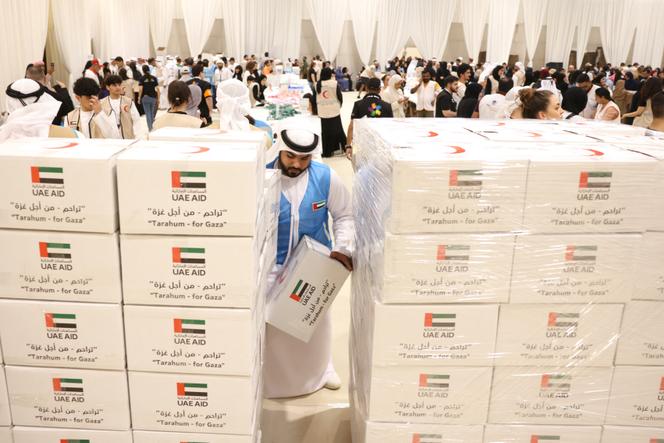


Sitting at her desk behind her computer screen in a building in Dubai, Noor (name changed), a Palestinian web developer in her twenties, tries as best she can to focus on her daily tasks. But to no avail. Her mind is elsewhere. "Honestly, I haven't been able to work properly since the war started," she admitted when we met her in mid-November. "I'm always on my phone, scrolling through the pages, looking at the news, what's happening at the moment, where the bombings are taking place, how many people have died."
Noor was born and raised in the neighboring emirate of Sharjah. Her family moved to the shores of the Persian Gulf after Israel conquered the West Bank following the Six-Day War in 1967. She is one of 300,000 Palestinians living in the United Arab Emirates, according to data from the Palestinian Central Bureau of Statistics. Like many of her compatriots in the diaspora, she is gripped by the war, feeling a mixture of "anger, frustration and disappointment," she described.
Taking advantage of her remote job, she went to a café on Alserkal Avenue, an industrial area of Dubai transformed into a cultural complex with galleries and shops. She was joined by her friend Yasmine (name changed), a 26-year-old British Palestinian, who shares her feelings. "As Palestinians, it is difficult to express what we are going through."
Both would like to be able to express their feelings openly and march in the streets like in "Amman, Beirut or London," feeling surrounded by crowds sympathetic to their cause. But in the United Arab Emirates, freedom of expression is severely restricted, and public protests are virtually non-existent. "It's frustrating, but, as residents, we don't have a say," explained Noor.
Palestinians in the Gulf states are "in a precarious situation," as "their right of residence can be revoked at any time," pointed out Jalal Al Husseini, associate researcher at l’Institut Français du Proche-Orient. He noted that this is the case for all foreign workers, that is, almost 90% of the country's 9.3 million inhabitants. Yet the Palestinian community is one of the oldest in the confederation, made up mostly of "highly qualified" people working in "education, the private sector, hospitality and catering," described Valentina Napolitano, sociologist and researcher at the Institut de Recherche pour le Développement. "Palestinians have really played an essential role in the development of some Gulf countries, particularly in administration and education."
You have 60% of this article left to read. The rest is for subscribers only.
